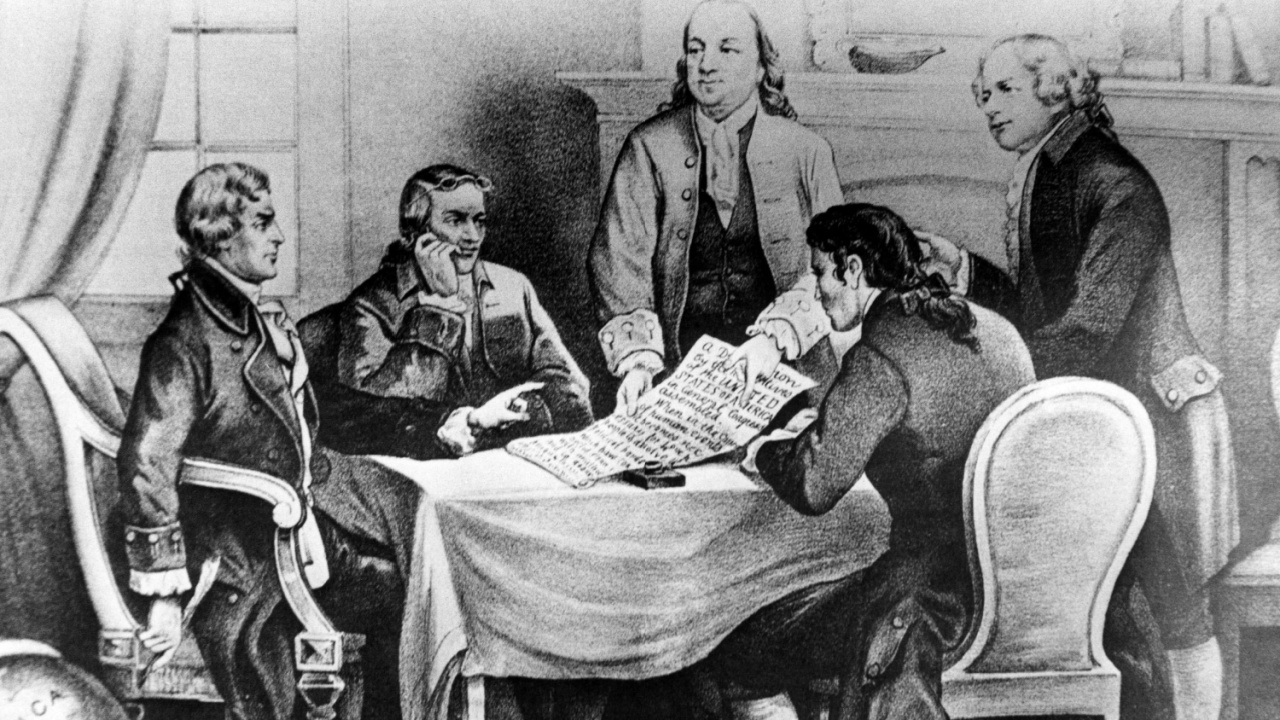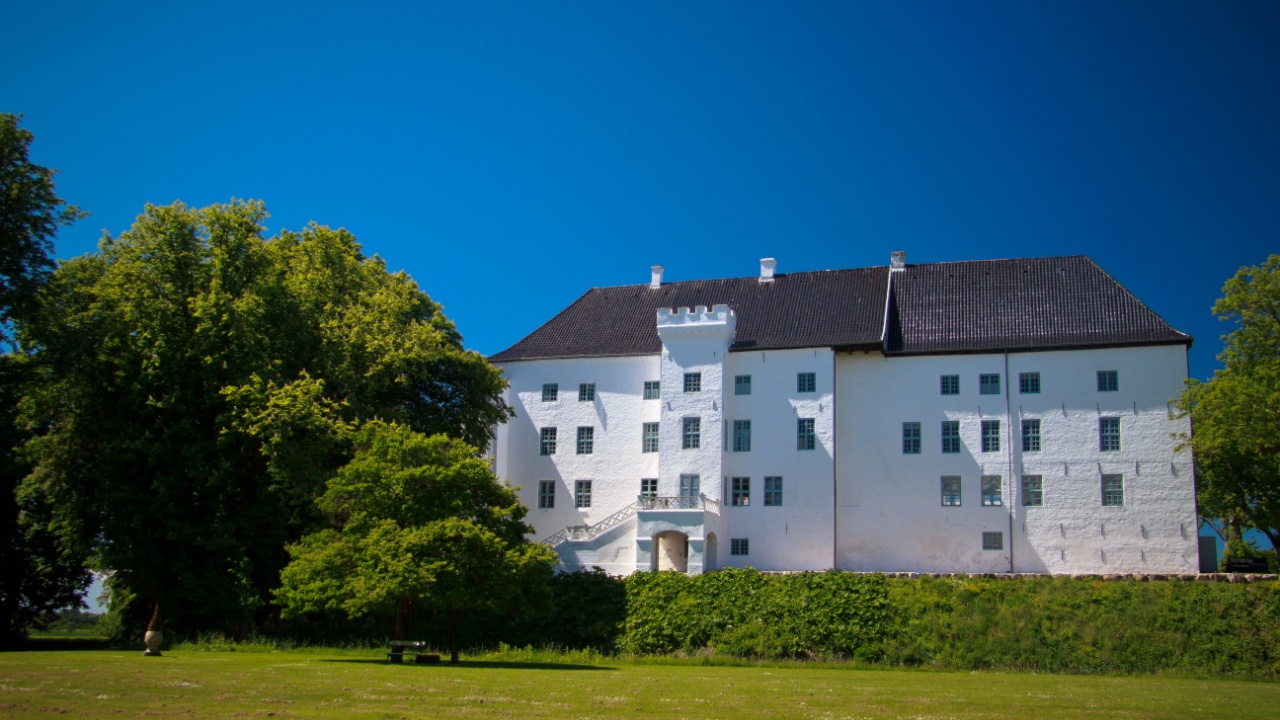14 Unbelievable Turning Points in History That Changed the World Forever
6. The Assassination of Archduke Franz Ferdinand (1914)

Photo Credit: Walter Tausch – Europeana 1914-1918, CC BY-SA 3.0
The assassination of Archduke Franz Ferdinand of Austria-Hungary set off a chain reaction that led to World War I. His death on June 28, 1914, marked the end of an era and the beginning of modern warfare.
This single event reshaped borders, governments, and societies. It’s a stark reminder of how fragile peace can be and the far-reaching consequences of political conflict.
7. The Fall of Constantinople (1453)

Photo Credit: By Akcel1406 – Own work, CC BY-SA 4.0, https://commons.wikimedia.org/w/index.php?curid=49761699
When the Ottoman Empire captured Constantinople, it marked the end of the Byzantine Empire and the beginning of a new chapter in global history. The fall reshaped trade routes, bridging the East and West in new and complex ways.
This pivotal event also inspired the Age of Exploration, as European powers sought alternative paths to Asia. Its legacy is a testament to the enduring impact of cultural and economic shifts.
8. The Atomic Bombings of Hiroshima and Nagasaki (1945)

Photo Credit: Depositphotos.com.
When the U.S. dropped atomic bombs on Hiroshima and Nagasaki in August 1945, it ended World War II but ushered in the nuclear age. The devastation was unprecedented, claiming hundreds of thousands of lives.
These bombings serve as a haunting reminder of war’s destructive power and the need for global cooperation to prevent future conflicts. The lessons learned continue to shape policies on nuclear weapons and peacekeeping.
9. The Fall of the Roman Empire (476 AD)

Photo Credit: Depositphotos.com.
The fall of the Western Roman Empire marked the end of one of history’s greatest civilizations. Its decline reshaped Europe, paving the way for the Middle Ages and influencing political systems for centuries.
Rome’s legacy lives on in modern governance, law, and culture. It’s a case study in how empires rise and fall, and what we can learn from their successes and failures.
10. The Women’s Suffrage Movement (19th-20th Century)

Photo Credit: Unknown author – Public Domain/Wiki Commons.
Winning the right to vote was more than just a victory for women, it was a victory for democracy. The women’s suffrage movement, which spanned decades, redefined what it meant to have a voice in society.
From the U.S. to the U.K. and beyond, these efforts inspired broader movements for equality. The fight for suffrage reminds us that progress often requires persistence and courage.
11. The Fall of Saigon (1975)

Image Credit: Shutterstock.com
The fall of Saigon marked the end of the Vietnam War, one of the most contentious conflicts of the 20th century. On April 30, 1975, North Vietnamese forces captured the city, signaling the collapse of U.S. involvement in Vietnam.
The event’s legacy includes hard lessons about war, politics, and the cost of human lives. It’s a sobering reminder of the complexities of global conflict.
12. The Discovery of Penicillin (1928)

Photo Credit: Official photographer – Public Domain/Wiki Commons.
Alexander Fleming’s accidental discovery of penicillin revolutionized medicine, saving millions of lives. This breakthrough paved the way for antibiotics, transforming healthcare forever.
It’s a reminder of how curiosity and perseverance can lead to discoveries that benefit all of humanity. The impact of penicillin is still felt in modern medicine.
13. The Civil Rights Movement (1950s-1960s)

Photo Credit: Rowland Scherman (U.S. National Archives and Records Administration) – Public Domain/Wiki Commons.
The American civil rights movement was a defining chapter in the fight for racial equality. Led by figures like Martin Luther King Jr., it challenged segregation and discrimination through peaceful protest.
Landmark achievements like the Civil Rights Act of 1964 showed the power of collective action. The movement’s legacy inspires ongoing efforts for justice worldwide.
14. The Industrial Revolution (18th-19th Century)

Photo Credit: Depositphotos.com.
The Industrial Revolution transformed how people lived and worked. Innovations like the steam engine revolutionized industries and economies.
This era laid the groundwork for modern society, with all its benefits and challenges. It’s a testament to the power of innovation to reshape the world.
Supa Ant 6x8ft. Welding Blanket Fireproof (Pack of 2) - Heavy Duty Weld Fire Blanket Tools - Welders Cover for Men Curtain with Gloves - Large Welding Gear for Welder Accessories
$59.96 (as of October 17, 2025 18:48 GMT +00:00 - More infoProduct prices and availability are accurate as of the date/time indicated and are subject to change. Any price and availability information displayed on [relevant Amazon Site(s), as applicable] at the time of purchase will apply to the purchase of this product.)RIVER OF GOODS Stained Glass Bird Accent Lamp - 8" W x 13.5" H - Tiffany Style Table Lamps for Home, Office Desk, Bedroom, Nightstand - Blue Jay Decor
$68.99 (as of October 17, 2025 18:48 GMT +00:00 - More infoProduct prices and availability are accurate as of the date/time indicated and are subject to change. Any price and availability information displayed on [relevant Amazon Site(s), as applicable] at the time of purchase will apply to the purchase of this product.)Joking Hazard Enlarged Box Empty Box for Card Storage
$12.00 (as of October 17, 2025 18:48 GMT +00:00 - More infoProduct prices and availability are accurate as of the date/time indicated and are subject to change. Any price and availability information displayed on [relevant Amazon Site(s), as applicable] at the time of purchase will apply to the purchase of this product.)RIVER OF GOODS Mid-Century Modern Transitional LED Bronze Chrome Ceiling Fan - 52" L x 52" W - Rich Barnwood/Light Driftwood Fan Blades - Metallic Ceiling Fan with Light and Fabric Shade
(as of October 17, 2025 18:48 GMT +00:00 - More infoProduct prices and availability are accurate as of the date/time indicated and are subject to change. Any price and availability information displayed on [relevant Amazon Site(s), as applicable] at the time of purchase will apply to the purchase of this product.)RIVER OF GOODS Stained Glass Magna Carta LED Ceiling Fan - 52" L x 52" W - Tiffany Style - Flush Mount Ceiling Fan with Remote - Teal
(as of October 17, 2025 18:48 GMT +00:00 - More infoProduct prices and availability are accurate as of the date/time indicated and are subject to change. Any price and availability information displayed on [relevant Amazon Site(s), as applicable] at the time of purchase will apply to the purchase of this product.)gbs LEGAL LOOTING GIVEAWAY
WIN $500 OF SHOPPING!
This will close in 0 seconds


















Post Comment